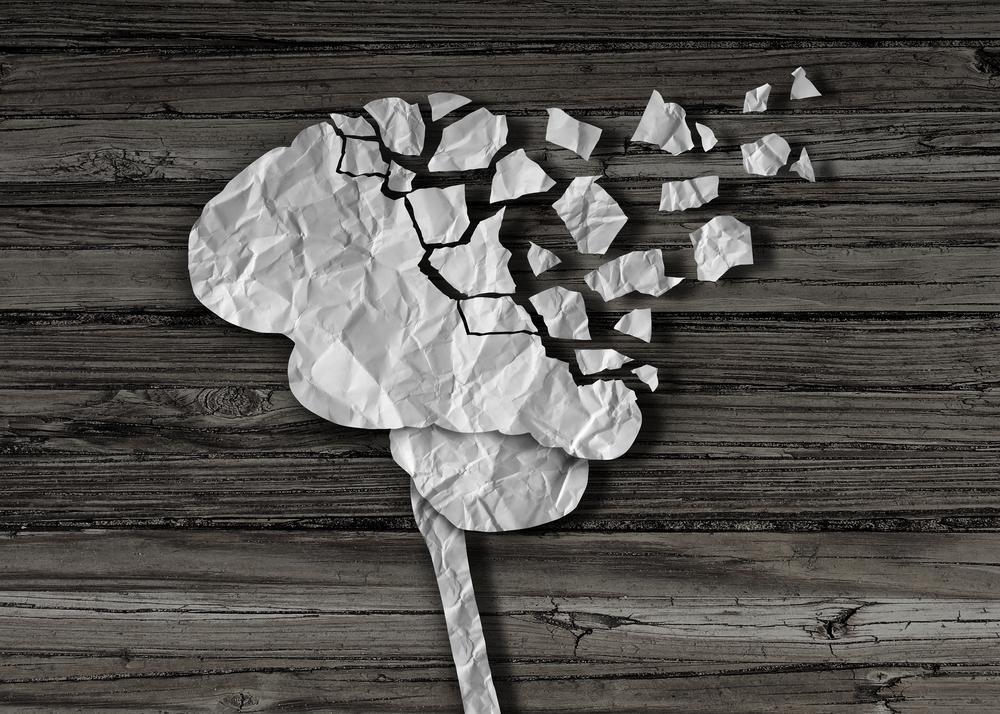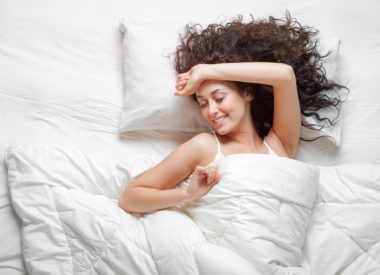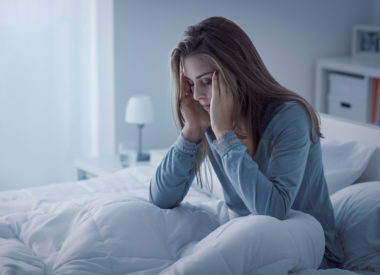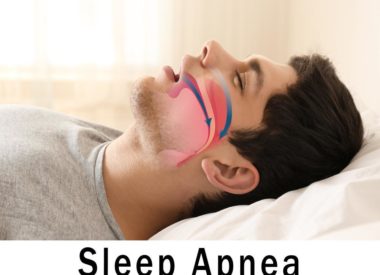Sleep and its impact on dementia
The National Sleep Foundation recommends that all individuals who have been diagnosed with some form of dementia also be screened for sleep disorders ; they report that “Two-thirds of those in long-term care facilities suffer from sleeping problems.”
Treating some common sleep disorders, such as restless legs or sleep apnea, can help improve the quality of life for these people as well as reduce the severity of their symptoms by improving their ability to get enough protective, restorative sleep.
What is dementia?
Dementia is defined generally as patterns of memory loss and cognitive dysfunction, due to changes in the brain, which have become severe enough to interfere with the activities of daily living.
There are several kinds of dementia disorders, the most common among them including:
-
Alzheimer’s disease
-
Dementia with Lewy bodies (DLB)
-
Huntington’s disease
-
Parkinson’s disease
How does sleep affect those with dementia?
According to statistics from the Alzheimer’s Association, “as many as 20 percent of persons with Alzheimer’s will experience increased confusion, anxiety and agitation beginning late in the day.”
For many, disrupted sleep schedules and restlessness are additional factors leading to behavioral problems, which can include:
-
Late-day fatigue that leads to mental or physical exhaustion
-
Circadian disruptions that make it difficult for oneto intrinsically know what time of day it is
-
A distorted ability to accurately gauge tone and intent in ordinary communications with others, leading to confusion, frustration, and stress
-
Struggles to separate dreams from reality before, during, and after sleep (day or night)
-
Reduced biological sleep drive, which is normal among older adults, but which can deny the healing and restoration that sleep can provide for people suffering with dementia
-
Nighttime restlessness, which could be construed as insomnia, among those who have early to mid-stage dementia
What is sundowning?
Those who suffer from dementia tend to experience morebehavioral problems later in the day, which last throughout the night. This phenomenon, known as sundowning , can become a regular behavior shift for dementia sufferers, and especially for those who also suffer from inadequate sleep.
Researchers are unclear on the connection between disrupted sleep and dementia disorders such as Alzheimer’s disease. People who lose sleep in general experience changes in memory and behavior as a result; for someone experiencing dementia, these changes in sleep can lead to aggravation of the condition.
Poor sleep and dementia
Sleep changes are more common in later stages of dementia, though some studies have found they can also occur in early stages. These changes can include:
Difficulty falling asleep or staying asleep sleeping. There is neurological evidence to show reductions in all stages that comprise sleep architecture in people with dementia.The results of sleep disruption include increased wandering behavior, restlessness, abrupt vocalizations, or frequent disruption of sleep for caregivers.
Circadian rhythm disruptions. Sundowning provides evidence of shifting in circadian rhythms which usually serve to regulate the sleep-wake cycle. Late-day behavior shifts and even complete reversals of typical daytime wakefulness and nighttime sleeping patterns can occur.
Napping due to excessive daytime sleepiness. People with dementia may feel fatigued or drowsy during the day and yet be unable to sleep at night. Inadequate sleep, night after night, can lead to napping to “catch up” on lost sleep, which further disrupts circadian rhythms.
An increase in REM Behavior Sleep Disorder (RBD). A specific form of dementia known as Lewy-body Dementia associated with Parkinsonism in older men is associated with this disturbing sleep disorder, which can cause violent sleepwalking-like behavior during sleep and may even be the first symptom to positively correlate with dementia in people with otherwise normal cognitive function.
When sleep becomes difficult
Therapies to treat dementia disorder for people with sleep challenges include both drug and non-drug options.The National Institutes of Health (NIH) recommends starting first with non-drug therapies. Sleep drugs have been found to be associated with little improvement in sleep quality for older adults, and they also greatly increase the chance for falls, heightened confusion, and less independent living.
In fact, an article just last month in Neurology Advisor revealed research showing that guidance for treating sleep problems with drugs in patients with dementia is significantly lacking.
The authors of the study, conducted by the Cochrane Dementia and Cognitive Improvement Group, further asserted that,
“In particular, we found no [randomized control trials] of many drugs that are widely prescribed for sleep problems in dementia, including the benzodiazepine and non-benzodiazepine hypnotics, although there is considerable uncertainty about the balance of benefits and risks associated with these common treatments.”
Non-drug therapies for improving sleep typically involve sleep hygiene best practices (see below) as well as strategic management of other medications not related to dementia which could affect sleep.
If non-drug treatments do not work, medication can be prescribed to manage late-day behavioral concerns like sundowning.
The Alzheimer’s Association recommends that patients and their caregivers always ask the following questions whenever they are facing the possibility of starting a medication to treat sleep:
-
What are the benefits of this medication?
-
What are the risks of this medication?
-
What other treatment options are available?
The risks of using certain medications could outweigh the benefits. The Food and Drug Administration (FDA) in 2008 updated its warnings about the use of antipsychotics in elderly patients treated for dementia-related psychosis to include both conventional and atypical medications, because research shows an increased risk of death for this population when they use them.
The FDA further warns of the following risks associated with antipsychotic use among dementia sufferers:
-
Elderly patients with dementia-related psychosis treated with conventional or atypical antipsychotic drugs are at an increased risk of death.
-
Antipsychotic drugs are not approved for the treatment of dementia-related psychosis. Furthermore, there is no approved drug for the treatment of dementia-related psychosis. Healthcare professionals should consider other management options.
-
Physicians who prescribe antipsychotics to elderly patients with dementia-related psychosis should discuss this risk of increased mortality with their patients, patients families, and caregivers.
Sleep hygiene solutions
The following sleep hygiene best practices can help reduce problems associated with sleep loss for those who experience dementia:
-
Make sure living spaces are well lighted in the evening.
-
Keep a comfortable, safe sleeping area for the dementia sufferer.
-
Maintain a consistent sleep routine that includes regular bedtimes and waking times.
-
Avoid heavy meals, caffeine, nicotine, alcohol, and sugary sweets at dinner time to ensure a smooth transition to sleep.
-
Plan for exercise and activity throughout the day to help regulate the sleep-wake cycle and support circadian function.
-
Limit screen time and any stimulating behavior one hour before bedtime.
What about caregivers?
Those who are tasked with the care and safety of someone with dementia may also struggle to get enough sleep. If you are the caregiver of someone with dementia, do take care to get enough sleep and reach out for help if you become sleep deprived.
Sources:
A Place for Mom: ” A Geriatricians Advice on Sleep Problems and Dementia,”Leslie Kernisan, MD (Nov 2015)
Alzheimer’s Association
Cochrane Dementia and Cognitive Improvement Group
The Food & Drug Administration
National Institutes of Health
National Sleep Foundation
Neurology Advisor



